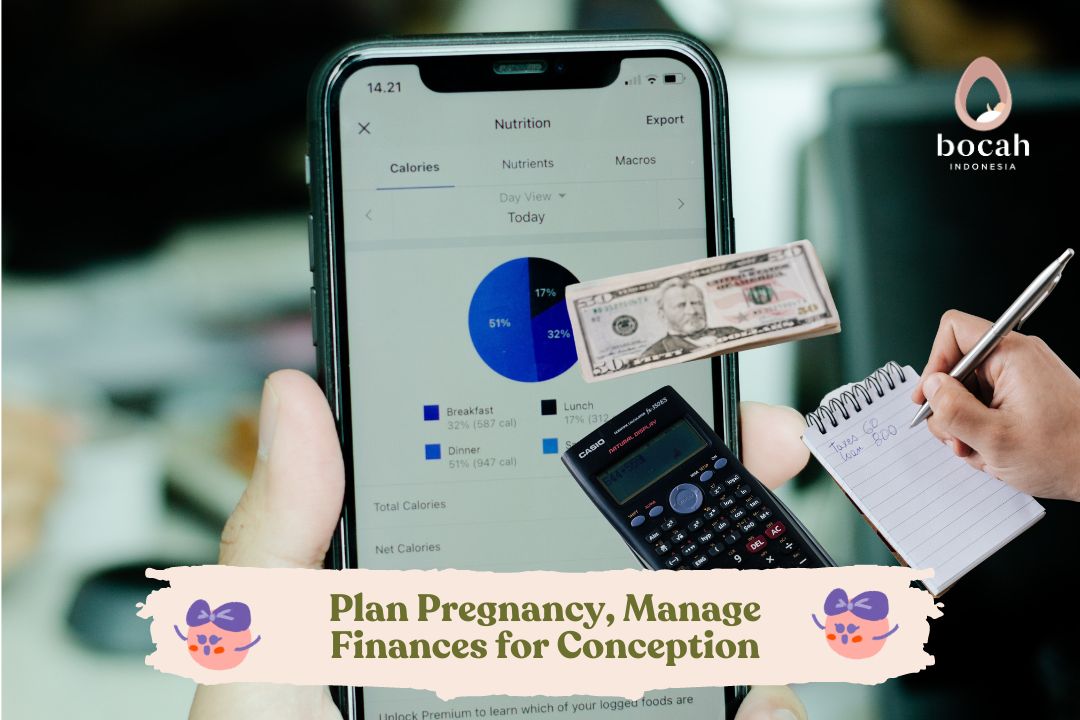Is It Pregnancy Nausea or a Stomach Ulcer? Here’s How to Tell the Difference, Mom

For moms who have a history of gastric issues, it can be difficult to distinguish between nausea caused by pregnancy and that caused by a stomach ulcer. To avoid confusion, let’s explore the differences between the two.
During pregnancy, nausea is one of the most common symptoms, particularly in the first trimester. Often referred to as morning sickness, this nausea doesn’t just occur in the morning—it can happen at any time of the day.
However, did you know that nausea isn’t exclusive to pregnancy? It can also be caused by digestive issues, such as gastritis or peptic ulcers. While both types of nausea may feel similar, the causes and sensations are actually quite different.
If you have a history of gastritis or acid reflux, telling whether your nausea is due to pregnancy or a stomach problem can be a unique challenge. To help clear the confusion, let’s dive deeper into the key differences between pregnancy-related nausea and that caused by gastric conditions.
Differences Between Pregnancy Nausea and Stomach Ulcer Nausea
While pregnancy nausea and nausea from a gastric condition may feel similar, they have distinct differences in terms of their causes, symptoms, and how they are treated.
Mulai Journey of Hope
1. Primary Cause
Pregnancy nausea is primarily caused by hormonal changes, particularly an increase in human chorionic gonadotropin (hCG) and estrogen levels. This nausea typically emerges during the first trimester and is often worse on an empty stomach.
In contrast, nausea from a stomach ulcer or acid reflux (GERD) is triggered by excess stomach acid irritating the lining of the esophagus. Common triggers include irregular eating patterns and the consumption of acidic or spicy foods.
2. Additional Symptoms
Pregnancy nausea is often accompanied by heightened sensitivity to certain smells, fatigue, and sometimes vomiting.
Meanwhile, gastric-related nausea usually comes with upper abdominal pain (epigastric pain), a burning sensation in the chest (heartburn), and difficulty swallowing. GERD at night may also trigger chronic coughing or even asthma-like symptoms.
3. Duration and Frequency
Morning sickness tends to occur at certain times, particularly in the morning or when the stomach is empty. However, it can happen throughout the day.
Gastric-related nausea typically occurs after eating—especially after consuming fatty, spicy, or large meals—and may last for up to two hours.
4. Different Approaches to Treatment
Antacids or gastric medications are not effective for treating pregnancy-induced nausea. Instead, pregnant women should focus on maintaining a healthy diet, avoiding known nausea triggers, and consulting a doctor for safe and suitable treatment options for both mother and baby.
Warning Signs of Dangerous Morning Sickness
Morning sickness is usually mild and manageable. However, there are cases where nausea and vomiting during pregnancy become severe and require immediate medical attention. Watch out for the following danger signs:
1. Severe and Unrelenting Nausea and Vomiting
Normal morning sickness tends to ease over time or after eating small meals. But if you are vomiting continuously and unable to keep food or fluids down, this could be a sign of hyperemesis gravidarum—a serious condition that can lead to dehydration and malnutrition.
2. Significant Weight Loss
Losing more than 5% of your body weight during pregnancy due to persistent vomiting is a red flag. Significant weight loss may impact fetal growth and overall pregnancy health.
3. Signs of Dehydration
Dehydration is a major risk of excessive vomiting. Key warning signs include:
-
Dry mouth
-
Dark-colored urine or reduced urination
-
Dizziness or lightheadedness
-
Rapid heartbeat
Dehydration during pregnancy must not be taken lightly as it can seriously affect both maternal and fetal health.
4. Vomiting Blood
If your vomit contains bright red blood or dark specks resembling coffee grounds, this could indicate gastrointestinal bleeding and should be treated as a medical emergency.
5. Severe Abdominal Pain or Fever
Nausea and vomiting accompanied by intense abdominal pain or a high fever may indicate infections or pregnancy complications that require immediate evaluation.
6. Absence of Fetal Movement
If nausea and vomiting persist into the second or third trimester and are coupled with a noticeable decrease or absence of fetal movement, consult your doctor immediately. A reduction in fetal activity may signal potential issues in the pregnancy.
7. Fainting or Severe Dizziness
Severe dizziness leading to fainting may indicate low blood pressure from dehydration or nutrient deficiency, which requires urgent medical care.
What Should You Do?
If you experience any of the warning signs above, take the following steps right away:
-
Contact your doctor for immediate medical advice.
-
Ensure adequate fluid intake to prevent dehydration. Oral rehydration solutions or electrolyte drinks may help.
-
Avoid foods or smells that aggravate your nausea, but continue to eat small amounts when possible.
-
With proper medical care, symptoms can be managed—this may include IV fluids or pregnancy-safe anti-nausea medications.
Don’t hesitate to seek medical assistance to protect your health and your baby’s well-being. Take care, Mom!
Source:
Babatseva, E., et al. (2020). A Neonate with Intrauterine Growth Restriction and Pseudo-Bartter Syndrome Due to Severe Maternal Eating Disorder: A Case Report. Clinical Case Reports, 8(12), Pp. 2541–2544.
Huang, I. et al (2021). The Prevalence of Uninvestigated Dyspepsia and the Association of Physical Exercise with Quality of Life of Uninvestigated Dyspepsia Patients in Indonesia: An Internet-based Survey. Indian Journal of Gastroenterology, 40, pp. 176–182.
American College of Obstetricians and Gynecologists (2023) Morning Sickness: Nausea and Vomiting of Pregnancy.
Boyd-Barret, C. Baby Center (20231). Morning sickness And Nausea During Pregnancy.
Cleveland Clinic (2020). Disease & Conditions. Large Bowel (Intestinal) Obstruction.
National Health Service UK (2021). Health A to Z. Hiatus Hernia.













